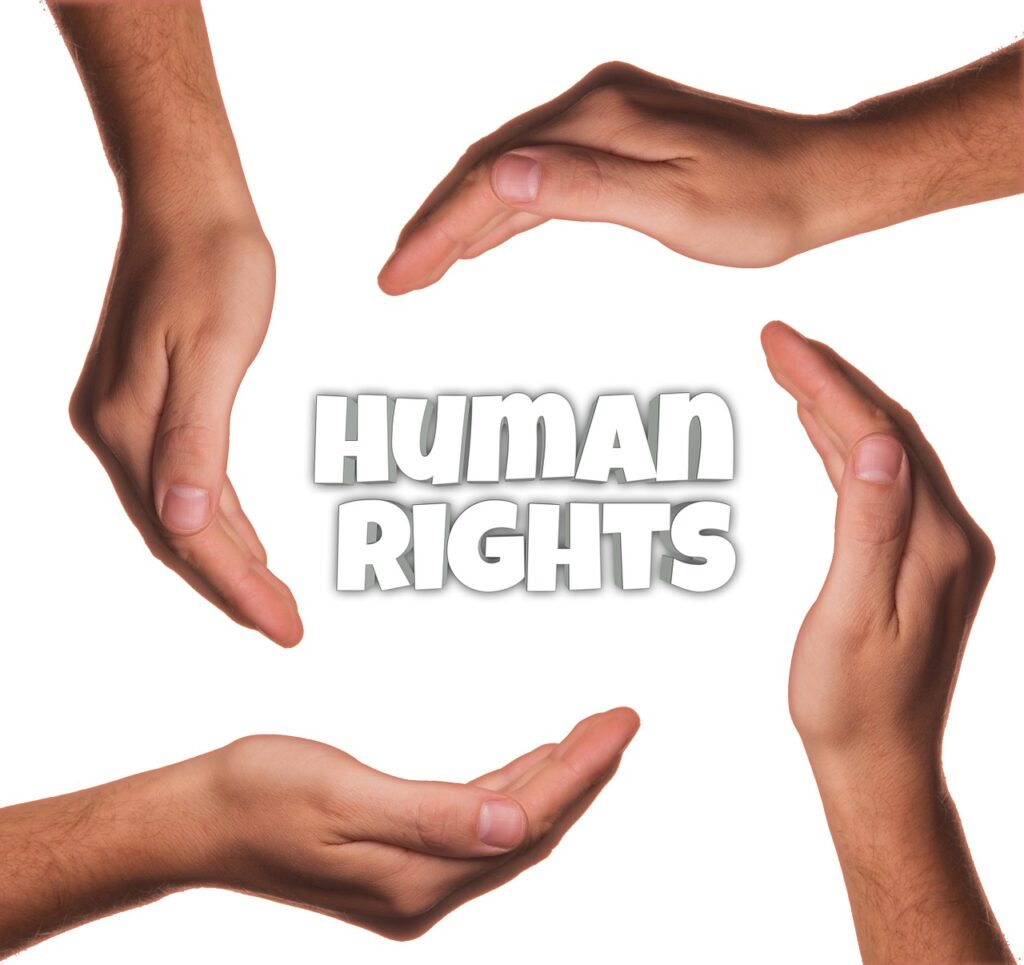
We continue our Sunday Evening Adult Faith Development Program for the 2023-2024 season online on Sunday, March 10, 2024, beginning @ 7 pm, continuing with the 5th session of a NEW 10-part series on Ethics and Unitarian Universalism entitled “What We Choose.” This week’s session will explore “Natural, Legal and Human Rights” within our tradition.

All human beings are born free and equal in dignity and rights. — The Universal Declaration of Human Rights, adopted and proclaimed by the United Nations, December 10, 1948
Various national and international agreements assert the existence of and proclaim ethical commitments to particular rights. Some are the United States Constitution and Bill of Rights, the Canadian Human Rights Act, the African Charter on Human and Peoples’ Rights, the American Convention on Human Rights, the European Convention on Human Rights, and the United Nations Universal Declaration on Human Rights. These agreements have not been crafted easily. Over time, there has been much debate about the nature of “rights,” and the difference between “natural rights,” with which we are naturally imbued because we are human; and “legal rights,” which result from political and/or democratic processes. “Human rights” is yet a third category, comprising norms the international community has agreed to through treaty. Enforcement of agreements about human rights often depends on political and diplomatic processes. Diplomats, academics, and citizenry continue to ask: What is the source of human rights? What authority grants them? Are they inherent to being human, or are they political constructs, or both?
Unitarian Universalists take pride in a legacy of support for human rights, grounded in our first Principle, which affirms “the inherent worth and dignity of every person.” This workshop asks: What are human rights? From where does our understanding of human rights come? Do human beings have certain rights which are inherent, and if so what makes them inherent? Can we base ethical decisions on upholding these inherent human rights? Participants reflect on what they consider the source of authority for these rights: secular philosophical ideas, religious and spiritual teachings, the democratic process, international agreements, or another source. Participants explore some challenges and applications of a rights-based morality as they consider instances where rights are in conflict.
Please CLICK HERE to register for the online session. Stay tuned to our weekly Message for more information about upcoming sessions and formats.
“Introduction” to Workshop 5: Tapestry of Faith: What We Choose: An Adult Program on Ethics for Unitarian Universalists
